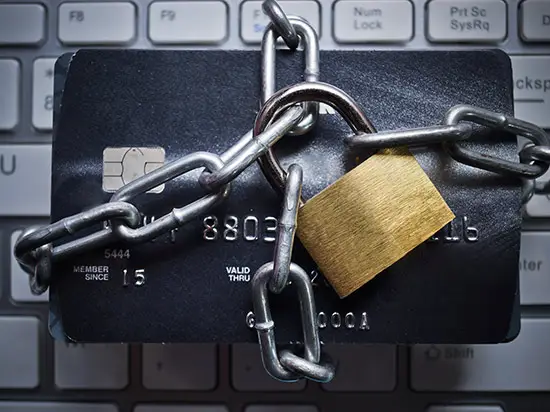Credit Card Protection Insurance

Credit Card Protection Insurance is a type of coverage that protects your credit card purchases in the event of death, medical disability or unemployment. It can also cover any damaged items that you've purchased with your credit card. This type of coverage is typically available for an additional monthly fee, but, if triggered, could allow you to forebear your credit card payments and suspend your interest for up to two years.
Do You Need Credit Card Insurance?
This sounds like a good deal - a kind of safety net, in case anything happens that prevents you from making your card payments. Unfortunately, there seems to be a lot of confusion surrounding credit card protection insurance, possibly because it's offered under many different names by the various card-issuing banks. A consumer might see products called Credit Shield, Payment Protection or Credit Safeguard. What are they, and how do they work?
There are four basic types of credit card insurance currently available. Creditcards.com explains them this way:
- Credit life insurance - At the time of the cardholder's death, the company pays off the credit card balance owed.
- Credit disability insurance - After the cardholder suffers a medical disability, the company will make the minimum payment due for a specified period of time. Any purchases made after the point at which the cardholder became disabled are typically excluded.
- Credit involuntary unemployment insurance - If the cardholder is laid off, the insurer will cover the minimum payment. Any charges made after the layoff are excluded, and the cardholder isn't covered if their unemployment is the result of termination.
- Credit property insurance - After an item has been purchased, if it's discovered to be damaged or is stolen during shipping, the insurer pays for the credit card purchases.
While these may cover the circumstances that most concern you, you have to read the fine print because there are exclusions in each type of coverage. These could range from the precise cause of death to the type of job that was lost. Do your research and ask questions before you buy any product.
How Can You Tell If You Already Have Credit Card Insurance?
There are two ways to find out if you've already been paying for credit protection insurance without knowing it. First, call your credit card company and have them check to see if you're signed up for one of their protection policies. It's entirely possible that you may have agreed to it without knowing, since these policies typically don't require authorization beyond a verbal agreement. Second, check your bank statements. Credit protection insurance will be listed as a separate payment on your bank statements. Be sure to check several statements, as these charges can be billed quarterly or annually and may not be visible on a particular month's statement. If you notice these charges and wish to cancel the insurance policy, call your credit card company. If you want credit protection insurance and discover that you don't have it, the same phone call should be made to acquire more information.
What Are the Pros and Cons of Credit Card Protection Insurance?
If you're unable to obtain any other type of insurance policy, Credit Card Protection Insurance is fairly easy to get. It doesn't require a signature and can be purchased over the phone.
The most important negative aspect of Credit Card Protection Insurance involves exclusions in coverage that might sneak up on you. For example, if you suddenly become disabled for a period of time, you may discover that your specific type of disability isn't covered. Similarly, if someone were to be a victim of homicide, the family may be told that the policy only covers deaths by way of accident or old age. This is why it is absolutely crucial, if you're planning on purchasing this type of insurance policy, to ask as many questions as possible up front.
In regard to cost, you should be aware that a Credit Card Protection Insurance policy only covers one card at a time. If you have three credit cards in your name and want disability coverage for each, you would need a separate insurance policy for each card. That could get expensive.
Do You Really Need Credit Card Insurance?
There is a good chance that you're already covered and don't even know it. If your employer has offered you a standard $50,000 life insurance policy or short-term disability policy, you're already covered and may not need any additional credit card protection. In the same way, your homeowner's insurance policy may take care of any damaged goods that you purchase. If you don't have these, there are still other options out there for you that don't cost quite as much.
A traditional disability policy, for example, may actually cost you less than credit protection insurance, and in the event of a claim, you'll have the freedom to decide which bills to pay with the funds you receive. With Credit Card Protection Insurance, the policy simply covers the minimum payment on your credit card.
Another option is self-insurance. By putting money away in an account of your own, you can ensure that you'll have funds to draw from to make your credit card payments if you become unemployed or disabled.
What's Next?
Because an insurance policy represents an ongoing cost, you need to make an informed decision about how it fits into your budget, and about the possible consequences if you experience a financial calamity without any coverage. Whether or not you choose to purchase a policy, we encourage you to take every action necessary to make sure you and your family have adequate protection from life's unforeseen events. Insurance is peace of mind, but it comes at a cost. Do your homework and make sure your policies suit your family's changing needs.
